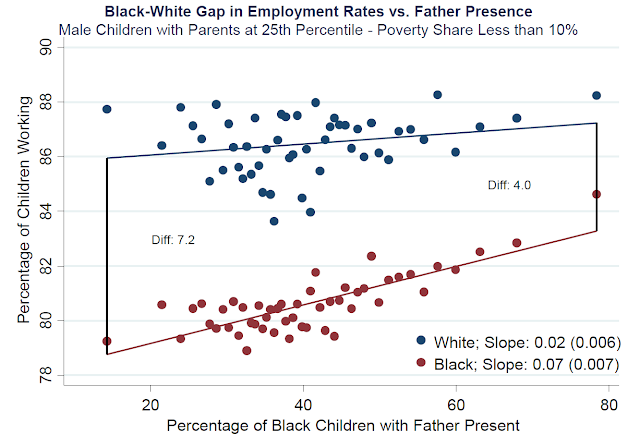Fathers Are Needed in Basic Education
Being born poor in this world already limits one's future because of a general inequality in opportunity. Upward social mobility is often hindered by lack of success in basic education. Fruitful employment is less likely without finishing at least a high school education. Poverty, with its deleterious effects on education, is indeed a difficult challenge to address. Still, there are ways by which one can alleviate the effects of poverty on education. In the Philippines, the conditional cash transfer program is touted by the World Bank as an intervention "proven to keep poor children healthy and in school". Of course, surviving is different from thriving. One needs an intervention that have much broader impact. With this task, it is necessary to find other factors aside from poverty that can have a significant impact on education. Apparently, there is one that affects families, regardless of income: The presence of fathers in a neighborhood.
This conclusion comes from a recent study done by Raj Chetty and coworkers. The conclusion is quite specific. Fathers are important not just any adult. A father must be present not only in a child's family since the effect is seen regardless of whether a child has a father or not. What seems to matter is that there is a substantial number of fathers in the neighborhood. This finding is illustrated in the following graph:
There is a clear correlation between employment rate and the percentage of black children with the number of fathers present. And this correlation is present even with children who do not live with a father. What apparently matters is that there is a large number of fathers in a neighborhood. It is more of a neighborhood than a family effect. What is amazing is that white children outcomes are also positively affected (although more mildly) by the percentage of black children with a father present in the community.
The above perhaps demonstrates that it does take a village to raise a child. The neighborhood counts. And the number of male adults who are involved in raising children in a community matters.
This conclusion comes from a recent study done by Raj Chetty and coworkers. The conclusion is quite specific. Fathers are important not just any adult. A father must be present not only in a child's family since the effect is seen regardless of whether a child has a father or not. What seems to matter is that there is a substantial number of fathers in the neighborhood. This finding is illustrated in the following graph:
 |
| Above copied from Chetty et al. (2018) |
There is a clear correlation between employment rate and the percentage of black children with the number of fathers present. And this correlation is present even with children who do not live with a father. What apparently matters is that there is a large number of fathers in a neighborhood. It is more of a neighborhood than a family effect. What is amazing is that white children outcomes are also positively affected (although more mildly) by the percentage of black children with a father present in the community.
The above perhaps demonstrates that it does take a village to raise a child. The neighborhood counts. And the number of male adults who are involved in raising children in a community matters.
Comments
Post a Comment